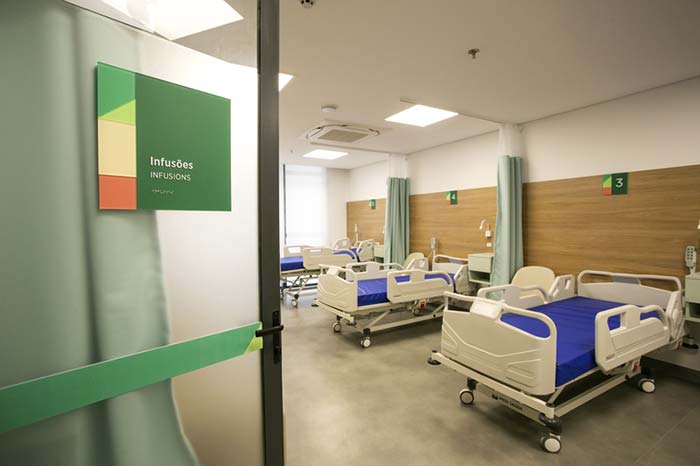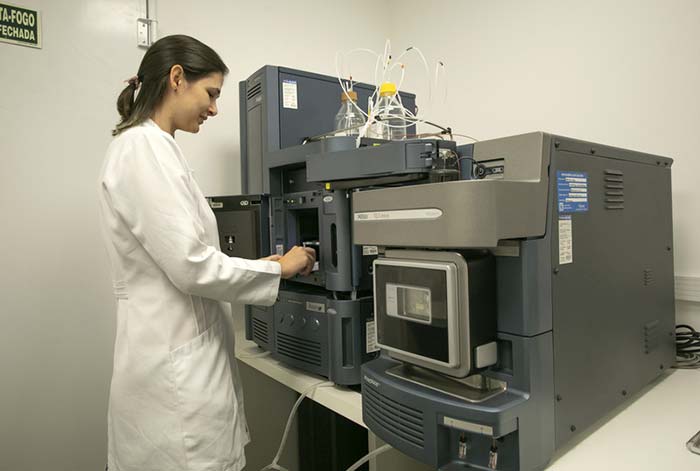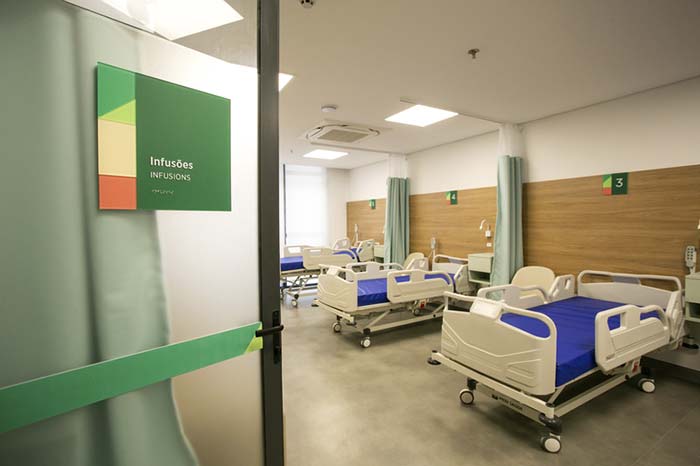In less than 60 days, individuals who had been waiting for more than five years have received the long-awaited answer: what is your rare disease? A fundamental diagnosis to speed up the treatment and management of these diseases, which affect up to 12 million Brazilians. Result of the work of Casa dos Raros, in Porto Alegre (RS), a center designed for comprehensive assistance, education and research on these diseases, which completes its first year with a direct impact on the reality of several patients — and with an innovative model of care which can be replicated across the country.
Opened on February 28, 2023, World Rare Disease Day — this year, celebrated on February 29 — the institution serves dozens of patients per month, 80% of which are children and adolescents. Patients have access to a multidisciplinary team, made up of a doctor (including a geneticist), physiotherapist, nutritionist, psychologist, social worker, nurse and other specialists, in addition to carrying out specialized laboratory tests.
The first to be treated by Casa dos Raros, on June 26, 2023, was the boy Heitor, diagnosed with epileptic encephalopathy associated with the STXBP1 gene. “We are eternally grateful to everyone who participated in the process. The House is essential for his treatment and I hope it can help many more people”, says Jennifer Leote, the boy’s stepmother.
The service is completely free. Initially, an interest register was opened, in which it is possible to register for a consultation. More than 2,000 people have already filled out the form which, after being evaluated by the team, continues with a remote consultation to collect more clinical, laboratory and family information. After that, another consultation, in person or virtually, is scheduled, with all the specialists necessary for the case.
After concluding the case, guidance is offered on management and counseling for patients and families and, if necessary, training can be provided to professionals who will continue with long-term care. Casa dos Raros will also provide periodic monitoring, in person or remotely.

Agreement covers the entire state
In a new step in the service, an agreement was signed in October between Casa dos Raros and the State Government, through the State Department of Health. During 42 months, 1,050 children and adults will be referred by primary care in the municipalities to consultations with the institution’s professionals. During the duration of the project, a total of 31,500 consultations are expected. The Rio Grande do Sul government will transfer R$ 3.15 million during the period.
Since November, when services began, more than 150 patients have passed through the House, such as Miguel Martiny Ferreira, from Montenegro. Waiting for a genetic test for five years, the boy was referred to the institution and, within a few weeks, the diagnosis came: an anomaly on the X chromosome that leads to intellectual disability and behavioral problems.
“I have no words, the service was very good. They welcome you, you feel very good. I thought Miguel would never get the exam”, celebrates Jessica Patricia Martiny, the boy’s mother.
An innovative model
Casa dos Raros was created to propose a differentiated model in the care of people with rare diseases. It is estimated that 30% of patients will not reach the age of five, as several of these illnesses are progressive and disabling. On the other hand, the journey to reach diagnosis and effective treatment can take up to ten years, passing through different professionals and even having to cross the country in search of specialists or procedures that are often expensive and sophisticated.
“We created Casa dos Raros to add to what already exists, shortening the journey from the onset of symptoms to diagnosis and treatment. Our objective is to contribute to a transformation of the reality of rare people in Brazil — an effort that requires the mobilization of all sectors of society, especially governments and public policies”, emphasizes geneticist Roberto Giugliani, co-founder of the institution.
President of Febrararas (Brazilian Federation of Rare Disease Associations) and also co-founder of Casa dos Raros, Antoine Daher considers this first year to be a dream come true, but there is still a lot to do. “We are proving that the Unified Health System can be capable of changing the story of all Brazilians with rare diseases, spending less, providing more care and with quality”, he highlights.
Created by Casa Hunter and the Instituto Genética para Todos, Casa dos Raros seeks to form a network that reaches all regions of the country. In São Paulo, the concession of land has already been obtained to build the Hospital dos Raros, which will be the first in the world specialized in these illnesses. Furthermore, the institution is proposing partnerships with health departments from other states to replicate the model of the agreement with Rio Grande do Sul. It is also preparing to be accredited as a Reference Service for Rare Diseases.

High technology
Casa dos Raros has 42 employees and high technology to speed up the diagnosis of rare diseases. The institution has a tandem mass spectrometer, capable of identifying molecules that other tests do not capture and which allows the diagnosis of around 100 types of rare diseases.
Furthermore, it was the first institution in Rio Grande do Sul to carry out highly specialized genetic tests, such as the whole exome, capable of scanning more than 20 thousand human genes to identify changes in DNA. So far, 36 exomes have been carried out, 12 of which through an agreement with the State. Casa dos Raros offers many additional exams through collaboration with Dasa Genomics.
The institution has a wide network of partners, including the Federal University of Rio Grande do Sul (UFRGS), Santa Casa de Misericórdia, Hospital Moinhos de Vento, the Federal University of Health Sciences of Porto Alegre, the Consortium of Universities Gaúchas Community Associations, FundMed, the Jô Clemente Institute and the Caldeira Institute.
The institution is also advancing in education and research projects: in the first year, 13 training events on rare diseases were held, in person or virtually. Furthermore, the House is in the regulatory submission stage of research projects and, this year, will begin testing new medicines.
How to be served by Casa dos Raros:
Register of interest
Access the Casa dos Raros website
On the page, access the registration of interest, which can be done by the patient themselves or on their behalf
In the form, fill in personal data and information about the case
After sending, contact will be made by the Casa dos Raros team within 30 days
Agreement with SES/RS
Patients are directed to Casa dos Raros through the public health network.
Como only
Casa dos Raros is maintained with the support of partners and also individual donations, which can be made by institution platform
On the website, it is possible to donate any amount via credit card, bank slip, Pix and other forms of payment. Donations can also be made on a recurring basis.






